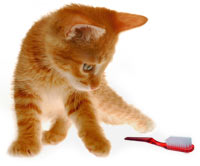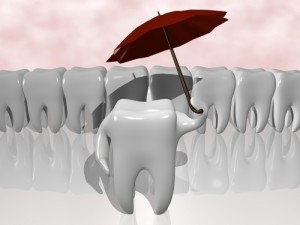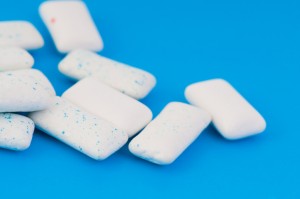 You already know how important brushing and flossing are for the health of your smile. But did you also know that certain foods can benefit your oral health too? Any number of specific foods can be beneficial, but today we’re targeting just a few general foods or drinks that can help you.
You already know how important brushing and flossing are for the health of your smile. But did you also know that certain foods can benefit your oral health too? Any number of specific foods can be beneficial, but today we’re targeting just a few general foods or drinks that can help you.
Green Tea
As we mentioned in an earlier post, green tea has been used medicinally for ages and is consumed by millions of people around the world every day. It has a higher number of antioxidants than black tea, which helps explain its many benefits for patients. Among the oral health benefits to look forward to, green tea actually kills cancer-causing free radicals and can reduce periodontal inflammation.
But that’s not all. Green tea is also known to aid in the reduction of dental plaque and can interfere with the production of hydrogen sulfide, which causes bad breath. Continue reading Foods and Drinks That Can Help Your Smile

 Parents have been telling their children to brush their teeth for at least 6,000 years. Archaeological excavations have uncovered evidence of ancient tooth cleaning implements, including twigs, feathers, bones, and quills. In fact, tooth brushing tools have been found as early as 3500 BCE in the Babylonian and Egyptian cultures, when people used frayed ends of twigs to scrub off bacteria and food particles.
Parents have been telling their children to brush their teeth for at least 6,000 years. Archaeological excavations have uncovered evidence of ancient tooth cleaning implements, including twigs, feathers, bones, and quills. In fact, tooth brushing tools have been found as early as 3500 BCE in the Babylonian and Egyptian cultures, when people used frayed ends of twigs to scrub off bacteria and food particles. creasing your intake of those healthy fruits and vegetables, are there any dental care issues associated with becoming a vegetarian?
creasing your intake of those healthy fruits and vegetables, are there any dental care issues associated with becoming a vegetarian? You probably have memories of your own Halloweens when you were a kid. You know what that sense of anticipation feels like waiting for Halloween to come, and that giddy, nervous sensation as you stand on a neighbor’s porch, waiting for candy.
You probably have memories of your own Halloweens when you were a kid. You know what that sense of anticipation feels like waiting for Halloween to come, and that giddy, nervous sensation as you stand on a neighbor’s porch, waiting for candy.
 Your Smile, and Your Overall Health, Is Under Attack
Your Smile, and Your Overall Health, Is Under Attack![shutterstock_41235853-[Converted] shutterstock_41235853-[Converted]](http://bestdentistnews.com/wp-content/uploads/shutterstock_41235853-Converted1-300x278.jpg) While most of us can’t imagine a world without the tooth fairy, she didn’t actually grace us with her presence until the early 1900s… at least, not in her current form. And depending where in the world you are, the “tooth fairy” is likely unrecognizable to those of us who grew up waking up the morning after losing a tooth to find a quarter under our pillow.
While most of us can’t imagine a world without the tooth fairy, she didn’t actually grace us with her presence until the early 1900s… at least, not in her current form. And depending where in the world you are, the “tooth fairy” is likely unrecognizable to those of us who grew up waking up the morning after losing a tooth to find a quarter under our pillow. It’s the middle of the day and you’re hungry. You could eat that apple you brought for an afternoon snack, but there’s also that box of cookies in the break room. And not just any cookies—homemade double fudge cookies.
It’s the middle of the day and you’re hungry. You could eat that apple you brought for an afternoon snack, but there’s also that box of cookies in the break room. And not just any cookies—homemade double fudge cookies.